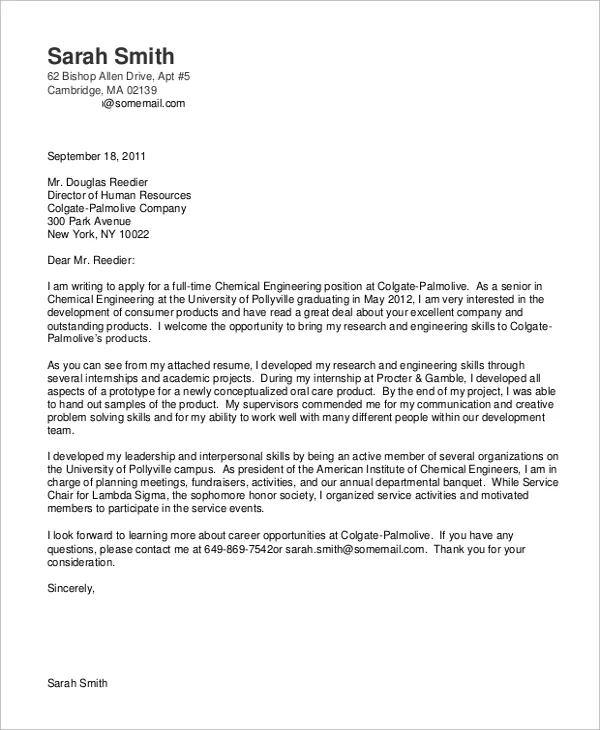Understanding the Cover Letter’s Role
As an aspiring engineering student, your cover letter is your first chance to make a lasting impression on potential employers. It’s more than just a formality; it’s a crucial marketing tool that complements your resume. It offers a platform to showcase your personality, express your genuine interest in the role and company, and connect your skills and experiences to the job requirements. A well-crafted cover letter can significantly increase your chances of securing an interview, while a poorly written one can lead to your application being overlooked. Therefore, understanding the role of the cover letter and dedicating time to create a compelling document is paramount for your job search success.
Showcasing Your Skills
Your cover letter should act as a spotlight, illuminating your skills and how they align with the job description. Don’t merely list your skills; provide specific examples that illustrate your proficiency. The goal is to demonstrate your ability to apply your skills in a real-world engineering context. Use the STAR method (Situation, Task, Action, Result) to structure your examples, making them engaging and easy to understand. This approach not only showcases your technical and soft skills but also highlights your problem-solving abilities and how you approach challenges.
Highlighting Technical Abilities
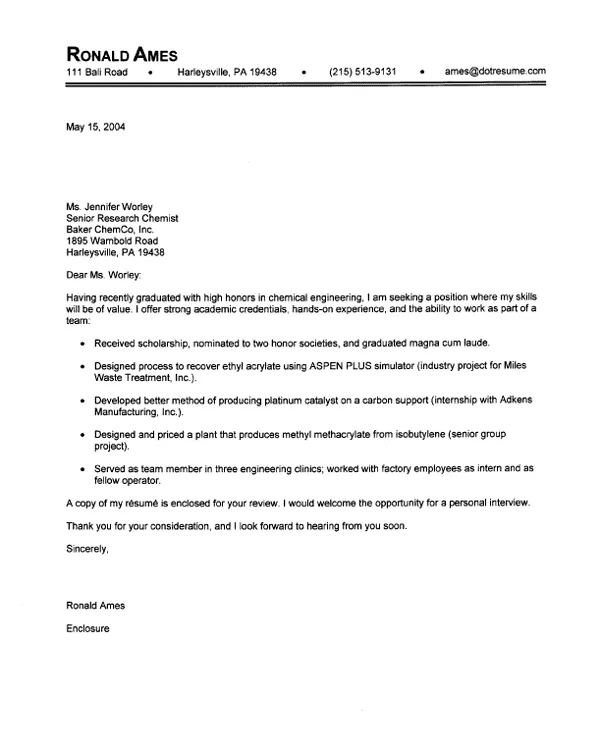
In the competitive field of engineering, technical skills are the foundation of your capabilities. Your cover letter is the perfect place to emphasize these abilities. Whether you’re proficient in CAD software, experienced with specific programming languages, or familiar with engineering principles like thermodynamics or structural analysis, be sure to highlight them. Provide context by mentioning projects or coursework where you applied these skills, demonstrating your hands-on experience. Tailor these technical aspects to match the requirements of the job, showcasing your ability to contribute immediately.
Emphasizing Soft Skills
While technical skills are vital, soft skills are equally important. These are the interpersonal and communication abilities that enable you to work effectively in a team, solve problems creatively, and adapt to challenges. Emphasize your teamwork skills by describing how you’ve collaborated on projects, your communication skills by highlighting presentations or reports, and your leadership skills by detailing any project management or team-leading experiences. Showcasing these soft skills proves you’re not just a technically skilled individual but also a well-rounded professional ready to contribute to a positive work environment.
Quantifying Achievements
To make your cover letter truly impactful, quantify your achievements whenever possible. Instead of stating you ‘improved efficiency,’ specify by how much. Did you reduce project costs by a certain percentage? Did you speed up a process? Did you increase team productivity? Use numbers to provide concrete evidence of your accomplishments. This will make your cover letter more compelling and demonstrate your ability to deliver results. When you quantify your achievements, you not only impress potential employers but also make a case for your value in the company.
Using Action Verbs
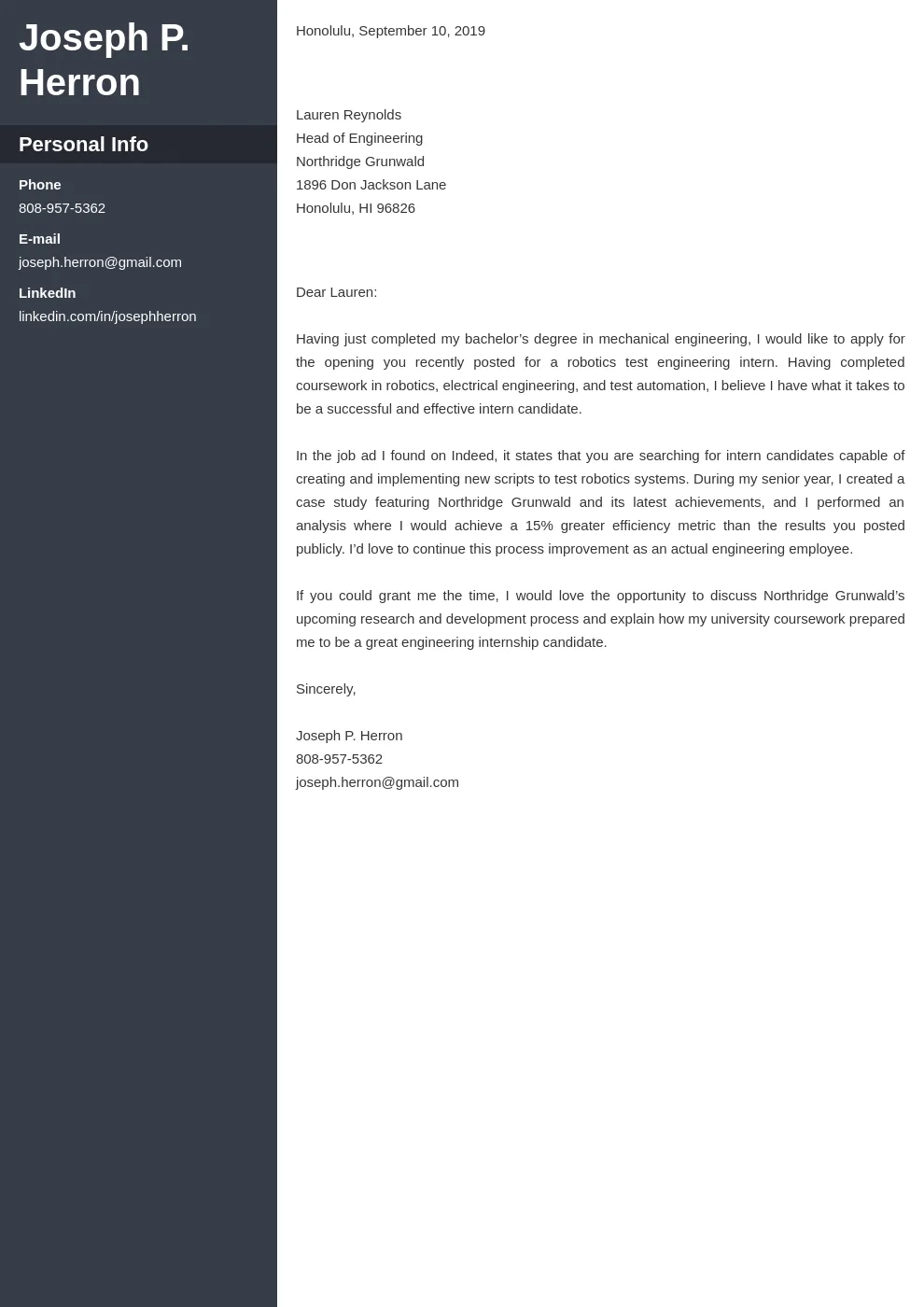
Your cover letter should be dynamic and engaging, and using action verbs is essential to make it so. Start your sentences with strong verbs that clearly convey what you did and what you achieved. Instead of saying ‘Responsible for project management,’ try ‘Managed projects, resulting in timely completion and cost savings.’ Action verbs breathe life into your cover letter, making it more compelling and highlighting your contributions. Choosing the right verbs will make a huge difference in how effectively you present your experience and skills.
Demonstrating Enthusiasm and Interest
Employers want to hire individuals who are genuinely excited about the opportunity. Your cover letter is where you express your enthusiasm for the role and the company. Research the company and mention specific projects, values, or initiatives that resonate with you. Explain why you are interested in the specific engineering role, and how your skills align with the job’s requirements. This shows the hiring manager that you are not just sending out generic applications but that you are genuinely invested in their company.
Researching the Company
Before you start writing, take the time to research the company thoroughly. Understand their mission, values, recent projects, and any news that might be relevant. This research will provide you with valuable information you can incorporate into your cover letter. Mentioning specific company projects or values demonstrates your genuine interest. This attention to detail sets you apart from other applicants. Your research will also help you tailor your letter, which is crucial for making a strong impression.
Tailoring the Letter
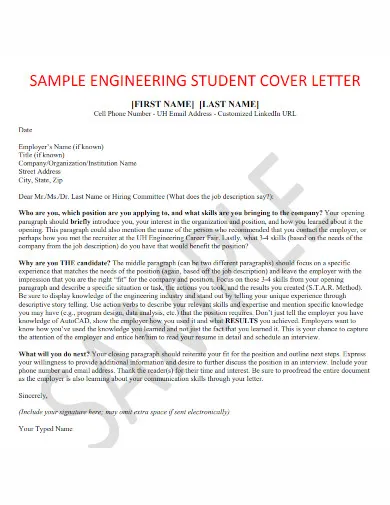
Generic cover letters often fail to capture an employer’s attention. Tailoring your cover letter to each job application is a non-negotiable step. Carefully read the job description, identify the key requirements, and then customize your letter to highlight the relevant skills and experiences. Mention the specific projects that align with the company’s work. The more specific you are, the better your chances of showing how your skills directly apply to the job. Tailoring shows that you care about the role and the company, and that you are a good fit.
Proofreading and Editing
Your cover letter is a reflection of your professionalism, and errors can detract from its message. Proofread and edit your letter meticulously. Look for grammatical errors, spelling mistakes, and formatting inconsistencies. Read your letter aloud to catch any awkward phrasing or unclear sentences. Make sure that your letter is concise, well-structured, and easy to read.
Ensuring Clarity and Conciseness
Clarity and conciseness are key elements of an effective cover letter. Keep your sentences short and to the point, avoiding overly complex language or jargon that might confuse the reader. Ensure that your points are clear and that your ideas flow logically. Every sentence should contribute to your overall message. Aim for a cover letter that is easily understood and leaves a lasting positive impression.
Seeking Feedback
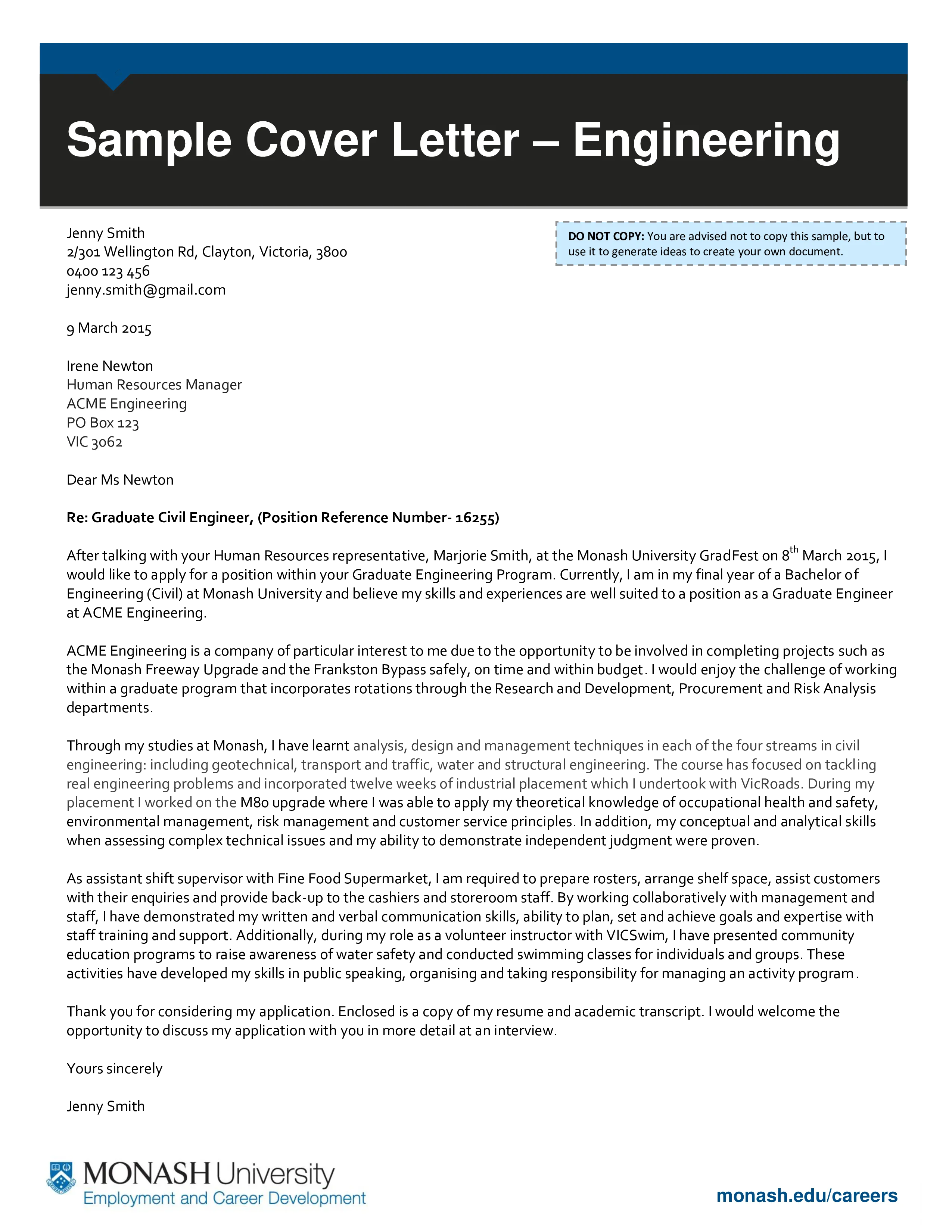
Before submitting your cover letter, ask a trusted friend, career counselor, or professor to review it. Get their feedback on your grammar, content, and overall presentation. They may catch errors you’ve missed or suggest ways to improve your letter. A second pair of eyes can be invaluable. Receiving feedback gives you an opportunity to refine your cover letter and make it more effective.
Following Up
After submitting your application, a follow-up can show your continued interest in the position. Send a brief, polite email or make a phone call a week or two after submitting your application to check on its status. Thank the hiring manager for their time and reiterate your interest in the role. However, be respectful of their time and avoid being overly persistent.
In conclusion, as an engineering student, your cover letter is a key document in your job search arsenal. By understanding its role, highlighting your skills, quantifying your achievements, expressing your enthusiasm, and meticulously proofreading, you can create a compelling cover letter that grabs attention and helps you secure that all-important interview. Remember to tailor each letter to the specific job and company. Following these tips will set you on the path to a successful career in engineering.
